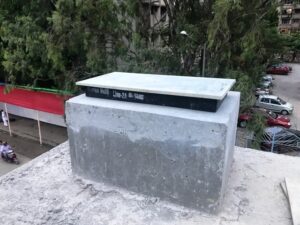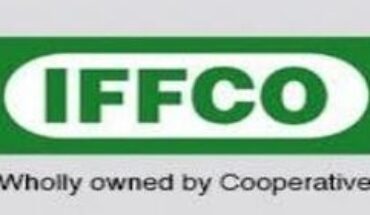Rubber is losing its elasticity in stretching to meet industry demands due to a crisis of shortage and spiralling prices of Carbon Black (CB), which is likely to shut down rubber products manufacturing units and cause immense loss of jobs – besides causing a severe setback to Prime Minister Narendra Modi’s mission +Make In India. Carbon Black is the major raw ingredient for manufacturing rubber products.
With the Indian Government restricting import of CB from China, Russia and other countries, Small & Medium Enterprises (SMES) are suffering immense business losses in paying high premiums to unauthorized markets for buying this raw material, according to Kamal Chowdhury, President, All India Rubber Industries Association (AIRIA).
“The impact of CB shortage is so severe that 1,000-plus affected SMES units are on the verge of closure with loss of around two lakh jobs, even as the entire industry is losing about Rs 750 crores every month,” he said while urging the Indian Government to urgently make policy amendments such as: Permit to import carbon black without duty; Restricting exports of carbon black till local supply position eases; Reviewing anti-dumping duty on carbon black; and Pushing for cost-audit of carbon black-producing companies in India.
 “Carbon black is a reinforcing material and filler in rubber products in both tyre and non-tyre segments. The rubber industry is predicted to grow at 8.42% CAGR in 2016-2020 — but has stagnated in last few years — despite current demand being 12.85 tonnes against capacity of 9.5 lakh tonnes. One major carbon black manufacturer has closed down in Delhi NCR. There is a massive shortage of about four lakh tonnes per annum, which is more than 30% of capacity,” he said.
“Carbon black is a reinforcing material and filler in rubber products in both tyre and non-tyre segments. The rubber industry is predicted to grow at 8.42% CAGR in 2016-2020 — but has stagnated in last few years — despite current demand being 12.85 tonnes against capacity of 9.5 lakh tonnes. One major carbon black manufacturer has closed down in Delhi NCR. There is a massive shortage of about four lakh tonnes per annum, which is more than 30% of capacity,” he said.
Domestic prices of carbon black have risen by 60% over the past six months. This crisis is witnessing rubber companies — who are supplying automobile and other industries – to default on supply orders and causing penalty on delayed delivery, or even cancellation of orders. While desperate component suppliers are resorting to buying carbon black from non-regular sources at very high prices, unassured grade and quality of such illegal material is causing working capital to get stuck and ending up in these suppliers becoming NPAs to banks, according to the AIRIA.
India’s rubber industry, which manufactures over 35,000 different rubber products used in Auto, Defence, Healthcare, Agriculture and other niche areas, is estimated to be at Rs 75,000 crore and 90% of the 6,000-plus rubber products manufacturing units are micro, small and medium enterprises (MSMEs) which account for 40% of rubber product exports, the AIRIA stated, adding that India is the 3rd largest producer and 2nd largest consumer of rubber in the world with over two million employed in the rubber industry and another one million in India’s rubber plantation sector.
Rubber industry representatives said here today that India’s rubber industry is highly labour-intensive and export-oriented due to the high wage cost globally including China. Vikram Makar, CMD, Oriental Rubber Industries, said the non-tyre sector is facing a harrowing time over the past few months due to “dilution” of quality of carbon black affected by shortage, and national performance of rubber products being compromised – despite India having a home-grown technology.
Vishnu Bhimrajka, Director, Polmann India Limited, said carbon black market prices hovered around Rs 105 to Rs 130 amidst speculations in supply, and all SMEs are facing shutdown even as critical consumers like defence, highways, infrastructure will be affected.
 Critical action included the Government suspending carbon black exports – which are around 9,000 to 14,000 tonnes monthly — and direct them to solve urgent local needs. Otherwise this industry will be in the doldrums, the AIRIA stated. The Rubber Skill Development Council is providing training, skills upgradation and jobs to the jobless in tapping this potential to meet the million-tonne rubber producing capacity, that is affected by carbon black shortage, one representative said.
Critical action included the Government suspending carbon black exports – which are around 9,000 to 14,000 tonnes monthly — and direct them to solve urgent local needs. Otherwise this industry will be in the doldrums, the AIRIA stated. The Rubber Skill Development Council is providing training, skills upgradation and jobs to the jobless in tapping this potential to meet the million-tonne rubber producing capacity, that is affected by carbon black shortage, one representative said.
“Carbon black gives tensile elongation, abration and reinforcement to rubber for wear and tear – in metro bridges, national highways, railway infrastructure — as virgin rubber has no strength,” Sukamar Shetty, Jt Managing Director, Tricon Polymers, said while adding “Today, tender-based projects like metros — with prices fixed way back – are affected by supply shortage and delay leads to increasing project costs . While foreign companies including from China bring in their products and damage our local supply market by undercutting prices, the Indian Government is forcing us to have joint ventures with these foreign companies , as we need certain approvals. These problems have been occurring over past few months and despite our thinking that this is a passing phase, things are only getting worse.”
Mahesh T. Velu, director, Vako Seals Pvt Ltd echoed his words. “Carbon black is used for making seals for hydraulics and pneumatic industry like excavators, JCBs, Caterpillars, construction, defence, armaments HV vehicles etc. Our monthly consumption for manufacture is between seven to eight tonnes as seals are critical in industry usage. We are getting carbon black from Korea, besides also three local suppliers at Rs 150 to Rs 170 per kilo. India has enough resources to make carbon black, which is being currently exported by local makers – whom the Government should entice to supply local needs as we are willing to pay their prices for timely supply,” he added.






